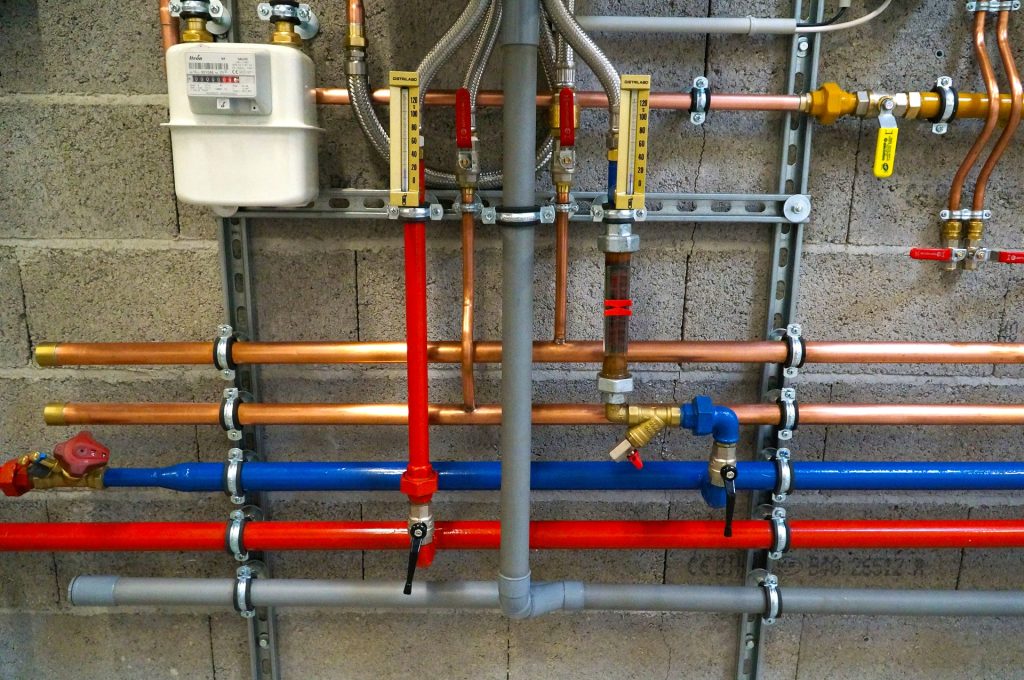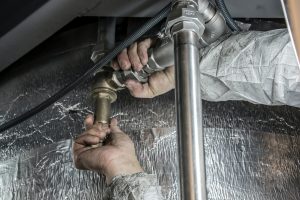Plumbers are essential. Without them, the plumbing fixtures that we enjoy would be rendered useless. We would be left with clogged drains, leaky pipes, and even clogged toilets. The roles of a plumber include installing, repairing, and maintaining the plumbing systems.
The perception of the plumbing industry is drastically changing. With the increasing demand for plumbers, more people are open to diving into careers. But what are the pros and cons of being a plumber? Understanding the plumbing career pros and cons is important as it helps you manage your expectations even at the early stages of the career.
Let’s explore the pros and cons of becoming a plumber, starting with the pros.
What are the pros of a plumbing career?
- Plumbers do not need a college degree to start their career
Most careers require a college education to start. But with the plumbing career, one can start as an apprentice and work towards getting the necessary work experience. Most plumbing companies accept students who have just completed high school. Another advantage of starting the plumbing career as an apprentice is the ability to earn as you gain work experience. This is not offered in most careers.
- Less student loan debt
Starting a career without a college education means little to no student loan debt. Plumber training does not cost much and is offered in vocational schools or community colleges. And as we mentioned, the apprenticeship program is also an excellent way to kickstart your plumbing career. While other career paths may lead to an accumulation of college loan debts, you will be learning vital skills and earning on the job.
- Availability of job options
Most people think that all plumbers do is install, repair and maintain plumbing fixtures. But there is more to that in the plumbing journey. Plumbers can choose a different specialty by becoming a steamfitter, gas service technician, distribution manager, pipefitter, pipelayer, or even a project manager. Plumbers can also opt to specialize in different industries such as commercial plumbing, domestic plumbing and even working for government entities.
- Exceptional pay
Remuneration is a major factor to consider before joining any career. The plumbing career guarantees high pay once qualified. Whether working for a plumbing company or an independent contractor, plumbers earn a decent salary, with the median salary of a plumber being $56,330 per year. According to the U.S Bureau of Labour Statistics, the highest 10% earned $98,990 while the lowest 10% earned $33,460. As you can see, advancing your plumbing career puts you in a better place to earn even more.
- High demand
Plumbers are always in high demand. This is even expected to further increase given the high rates of retirees and the increase in construction activity. Also, there is a demand for renovation, repair, and maintenance of old plumbing systems.
- Job security
Who wants to start a career and risk not having job security? Some people may worry that the plumbing career will be outrun by new technology. However, that is unlikely to happen anytime soon. Even with the invention of new plumbing technology and systems, only qualified plumbers can install, repair and maintain the systems. This is because plumbing requires manual skills that advanced technologies cannot accomplish.
- Career advancement
The plumbing career offers excellent advancement opportunities. Plumbers can advance their skills and even reach master levels. The possibility of becoming a self-employed plumber is also something that most qualified plumbers look forward to.
- No routines
A career with one routine can get boring, no matter how good the pay is. Plumbing jobs involve a lot of problem-solving and troubleshooting. This means new challenges every day. Also, plumbers get to travel a lot.
What are the cons of a plumbing career?
- The career is physically demanding
Plumbers spend a lot of time on their feet, bending, crawling, and carrying heavy equipment. While this helps them to stay active, the physical demands can take a toll on the body especially for those who have health issues.
- Long training period
The plumber training period is long. The apprentice program takes 4 to 5 years before one can become fully qualified, not to mention the additional plumbing examinations. Luckily, plumbers get to earn via an apprenticeship.
- Plumbers work long and irregular hours
Just when you have called it for the day, a customer calls with an emergency that needs to be fixed. And because some plumbing issues require immediate intervention to prevent risks to human health and extensive damage, plumbers do not have much choice when such issues arise. Whether you are self-employed or working for a contractor, you may need to work late, during the holidays and even weekends.
- The plumbing career is marred by various occupation risks
Plumbers are exposed to different risks in their line of work. Talk of sparks, chemicals, falling objects, gases, and even loud noises. If poorly handled, these items can cause accidents or expose plumbers to hazards. For instance, plumbers have reported slips, hearing loss, eye injuries, severe reactions to inhaling mold, and even exposure to biohazard materials. As a plumber, you will be required to wear protective gear such as goggles, gloves, respiratory masks, and earplugs.
- Plumbers often work under pressure
The plumbing career lacks predictability. While this removes mundane routines and makes it interesting, it can put a plumber under immense pressure. For instance, when a client calls in with a certain problem, they expect that the plumber can fix it in a short period. When this fails, dissatisfaction is often evident. Plumbers work under tight deadlines. And in some instances, some situations can be life-threatening or even cause extensive damage if not quickly solved. It is important to know how to handle such pressure, stay composed, and reassure clients that the problem will be solved.
Bottomline
The information on plumber pros and cons is vital before fully diving into the career. Every career has pros and cons. However, knowing how to manage being a plumber pros and cons can help one excel in the field, and it all starts with understanding them.




